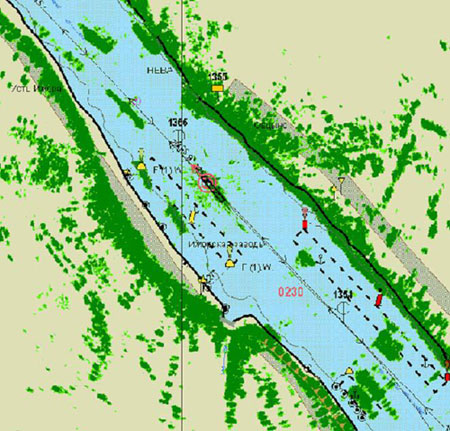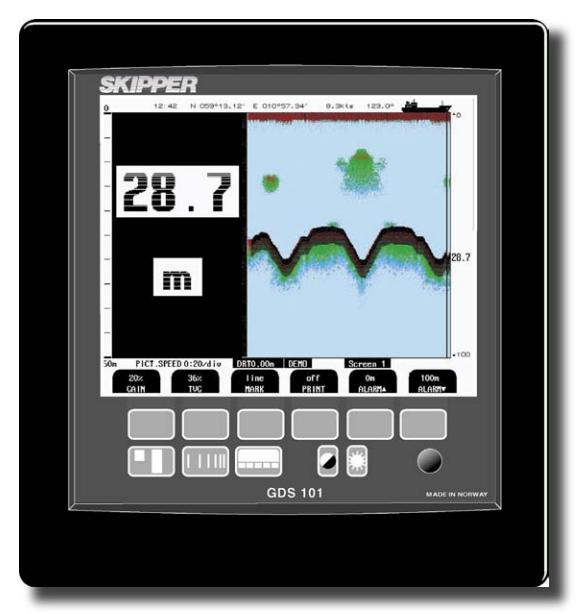Skipper GDS 101 / 102
Available for order
Sounder GDS101 - modern, reliable and accurate navigation echo sounder with LCD high-resolution display. Single channel, designed for sensors 3 frequencies (200.50 and 38 kHz) is always displayed on the graphic image with all possible navigational data. You can connect a standard parallel printer, PC and memorize sonar data from the past 24 hours. Meets all IMO. There are all kinds of interfaces, including input and output NMEA 0183. The control unit consists of a matrix graphic LCD display and keypad with buttons fixed and free appointment and rotation handles. Echogram displayed and stored in memory continuously.
Sounder GDS102 - full analogue GDS101 outwardly, but inside this sounder carries high-tech equipment capable of operating at two frequencies simultaneously. The display shows both sensors. Thus GDS-102 is very suitable for use in long vessels where needed control and stern and nose when mooring
GDS101 as GDS102 have RMRS approval.
Sounder GDS102 - full analogue GDS101 outwardly, but inside this sounder carries high-tech equipment capable of operating at two frequencies simultaneously. The display shows both sensors. Thus GDS-102 is very suitable for use in long vessels where needed control and stern and nose when mooring
GDS101 as GDS102 have RMRS approval.
 29.06.2015
Radar overlay
29.06.2015
Radar overlay
In accordance with IMO Resolution MSC.282 (86) from 2012 to 2018 all seagoing vessels must be equipped with ECDIS systems in the elements of the integrated navigation system.
 +7 (812) 4-673-673
+7 (812) 4-673-673

